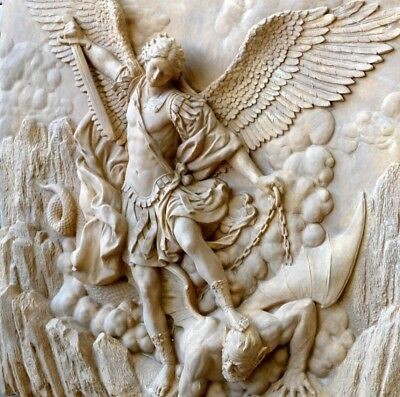– Rev José Mario O. Mandía
The existence of angels is a truth of our Faith. Jesus Christ explicitly teaches us about their existence. He himself was comforted by an angel during his agony (cf Luke 22:43).
Who and what are angels? Number 60 of the CCCC (cf also CCC 328-333, 350-351) summarizes what angels are and what they do: “The angels are purely spiritual creatures, incorporeal, invisible, immortal, and personal beings endowed with intelligence and will. They ceaselessly contemplate God face-to-face and they glorify him. They serve him and are his messengers in the accomplishment of his saving mission to all.”
The angels are pure spirits. “Saint Augustine says: ‘“Angel” is the name of their office, not of their nature. If you seek the name of their nature, it is “spirit”; if you seek the name of their office, it is “angel”: from what they are, “spirit,” from what they do, “angel.”’(Enarrationes in Psalmos 103,1,15)” (CCC 329).
The name “angel” indicates their role and function. And this function is to be servants and messengers of God (the Greek word αγγελος – “angelos” – means “messenger”). “With their whole beings the angels are servants and messengers of God. Because they ‘always behold the face of my Father who is in heaven’ (Matthew 18:10) they are the ‘mighty ones who do his word, hearkening to the voice of his word’ (Psalm 103:20)” (CCC 329).
Like human beings, they “have intelligence and will: they are personal and immortal creatures” (CCC 330). However, because they are pure spirits, they surpass “in perfection all visible creatures, as the splendor of their glory bears witness (cf Pius XII, Humani generis; Lk 20:36; Dan 10:9-12)” (CCC 330).
Angels are infinitely smarter and more powerful than we are. As far as the Church is concerned, She “joins with the angels in adoring God, invokes their assistance and commemorates some in her liturgy. ‘Beside each believer stands an angel as a protector and shepherd leading him to life’ (Saint Basil the Great)” (CCCC 61).
“From its beginning until death, human life is surrounded by their watchful care and intercession. Beside each believer stands an angel as protector and shepherd leading him to life. Already here on earth the Christian life shares by faith in the blessed company of angels and men united in God” (CCC 336). Pope Benedict XVI further taught that angels are “ministers of the divine care for every human being. From the beginning until the hour of death, human life is surrounded by their constant protection” (Angelus, 2 October 2011).
Despite their excellent qualities, however, some angels preferred to turn away from God, falling in love with their own excellence. “They were, however, transformed into evil because with a free and irrevocable choice they rejected God and his Kingdom, thus giving rise to the existence of hell. They try to associate human beings with their revolt against God” (CCCC 74). So powerful is their influence that in the last two petitions of the Lord’s prayer, Jesus Christ instructed us to ask God not to allow us to fall into temptation, but to deliver us from evil.
We should nevertheless remember that God’s power is much greater. “The power of Satan is, nonetheless, not infinite. He is only a creature, powerful from the fact that he is pure spirit, but still a creature. He cannot prevent the building up of God’s reign. Although Satan may act in the world out of hatred for God and his kingdom in Christ Jesus, and although his action may cause grave injuries – of a spiritual nature and, indirectly, even of a physical nature – to each man and to society, the action is permitted by divine providence which with strength and gentleness guides human and cosmic history. It is a great mystery that providence should permit diabolical activity, but ‘we know that in everything God works for good with those who love him’ (Romans 8:28)”
(CCC 395).


 Follow
Follow


